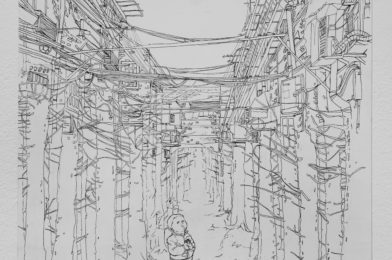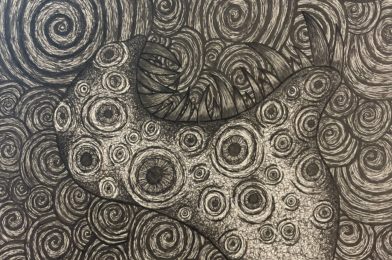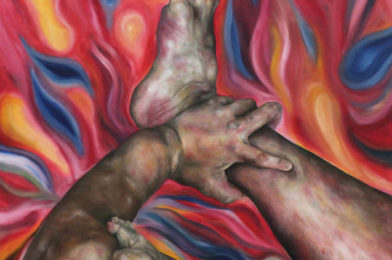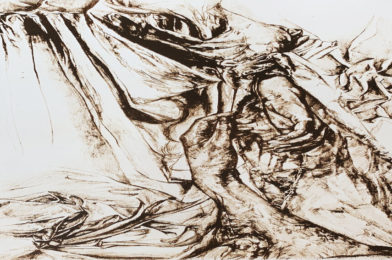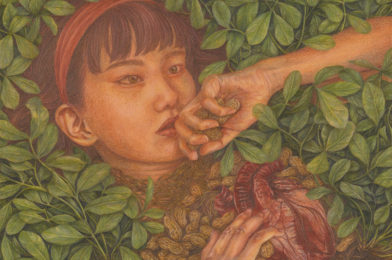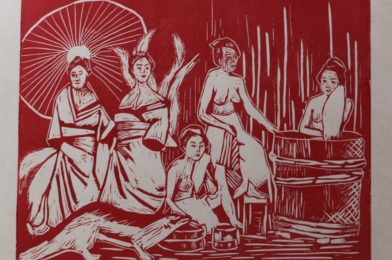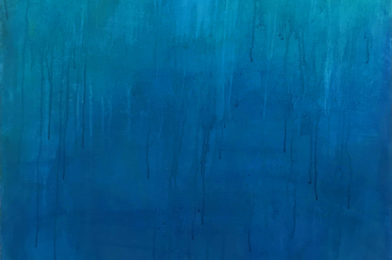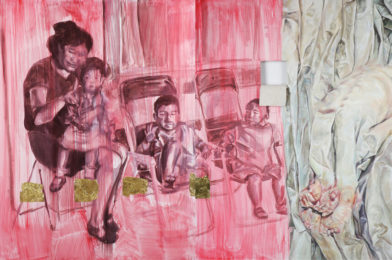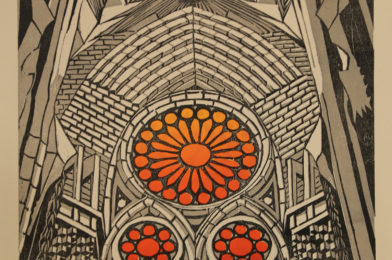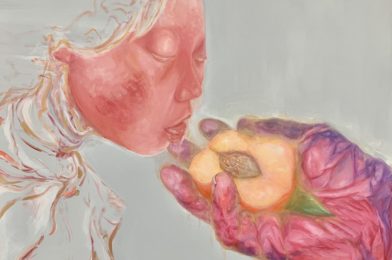1.
Avoid the loopies; if a nearly naked man
begins bathing himself in milk by the folding origami doors,
run. Or if a ravenous lady bites into your shoulder
for a mere morsel. Or if a man with RDA (resting drunk attitude) and
a skullet, enveloped in a power puff bathrobe,
describes his tumultuous love life
with the most unneeded details.
Or if a guy playing air guitar in a cascading cream ball gown
offers you a lollipop from deep in the flounces around his crotch, say no.
Or if a man cleanly removes his shirt and begins slathering himself
in slickening lotion. Avoid all eye contact.
They’ll just start talking to you more.
2.
Ignore the irrational, irritating teens,
infesting the back of the bus
like the stench of bubblegum vape and piss,
chucking half-open bottles of neon Gatorade at passersby,
tip-tapping random folks like woodpeckers
on a tree. And if they profusely repeat
“Happy Birthday, Happy Birthday, Happy Birthday,”
when you know in fact it is not your birthday, or when
they chuck bouncy balls at you, and even
though it shouldn’t be unbearable, you have the urge to punch them.
Instead, flip them off and run, knowing full well
they are much older and much stronger.
3.
Don’t be a dick. If a triple sweatered old lady
heaves herself onto the bus, and lurches towards your seat,
freighted with torn pink plastic bags
bearing broken bok choy and broccoli,
then you must stand. Especially,
if the bus is like a can of stewed tomatoes,
all mushed together, practically red sauce.
Or if a life-sapped mother trails by
clinging to a stroller, a boiling tea kettle of sorts
delicately adorned with lavishly looping leaves
and inside a ceaseless screeching,
then quickly make way.
4.
Escape.
Plow through piles of people rushing in
like ants to the nest before rain.
Dodging elbows, backpacks
and deafening debates
as you hurdle to the shit decorated sidewalk
shout ‘Thank You!’ to the driver.
This is non-negotiable.
Stuck in an endless loop
of bathrobes, tossed gatorade and screeching,
this simple courtesy might do them some
good.

